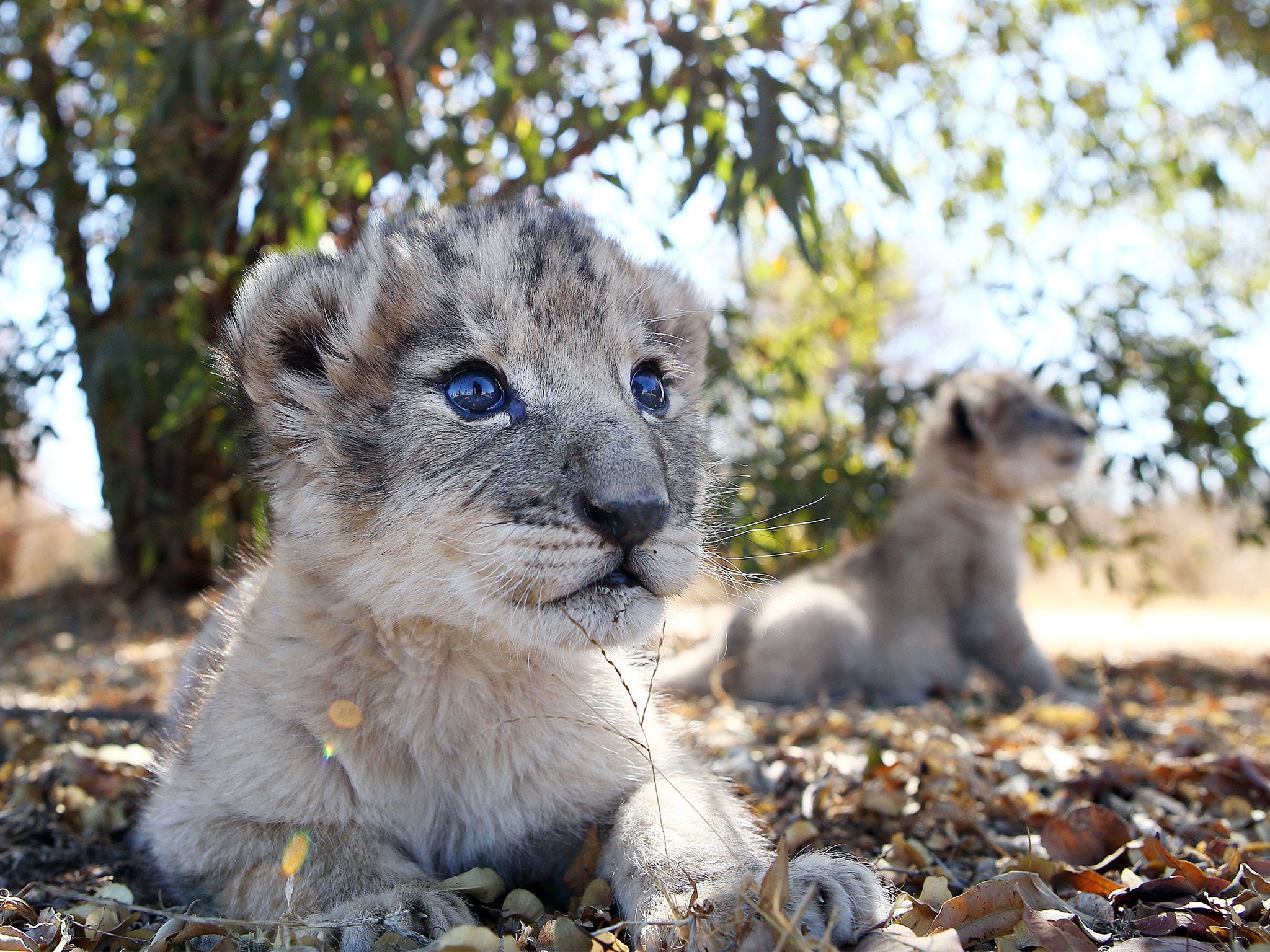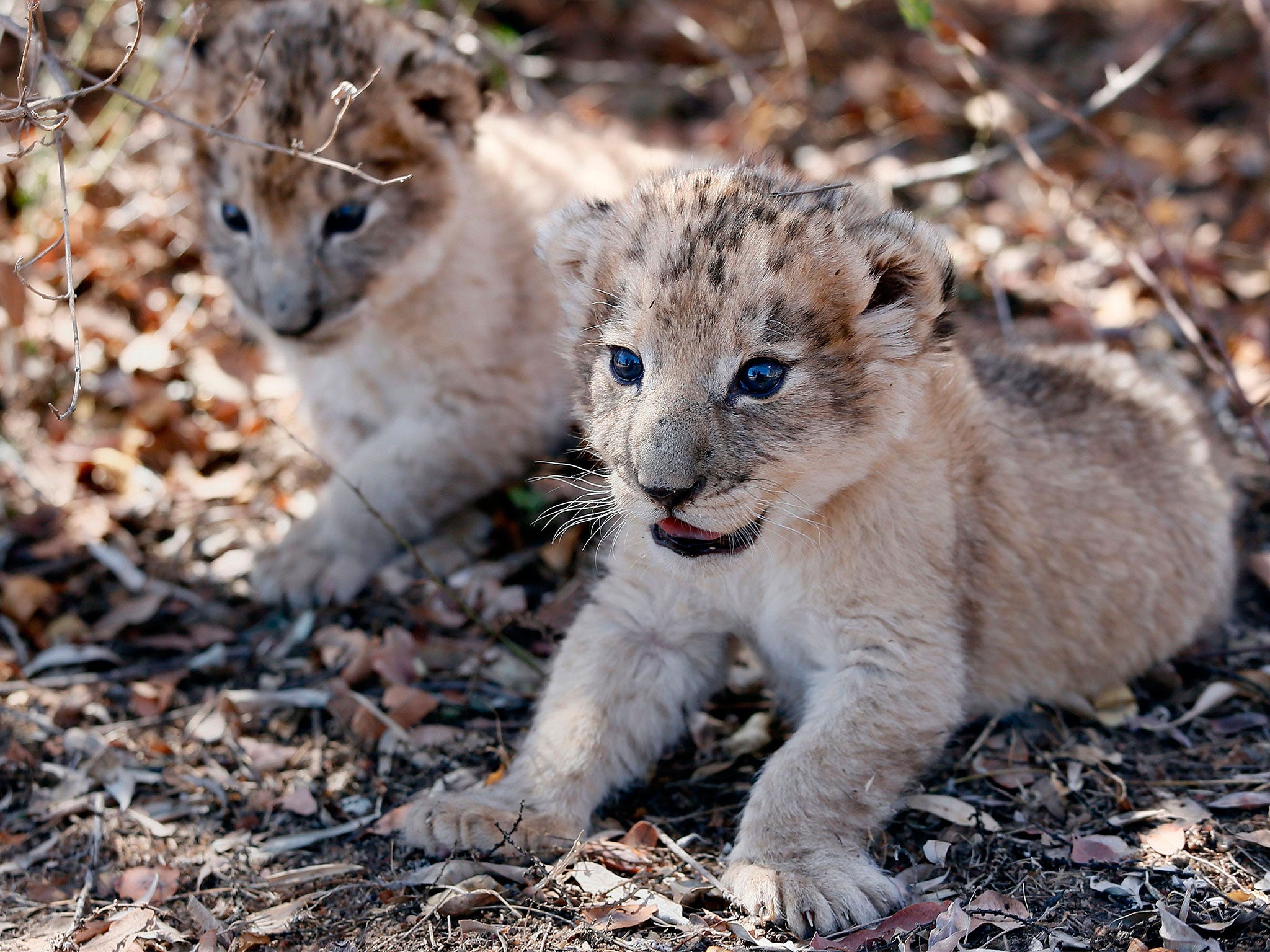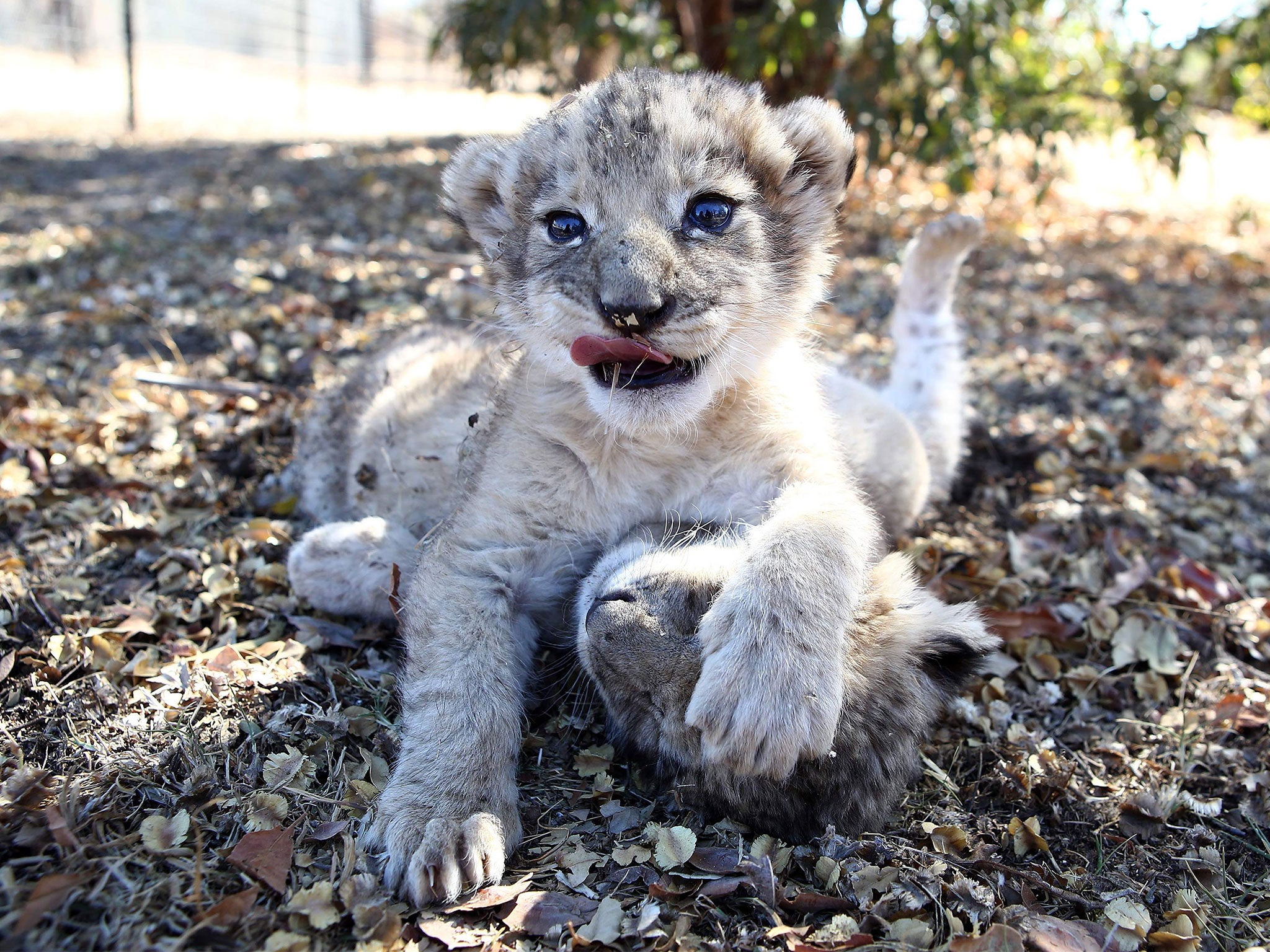World’s first test tube lions are thriving and raising hopes more big cats could be saved from extinction
IVF treatment was used to impregnate mother of cubs Viktor and Isabel

The world’s first test tube lions are thriving a month after they were born, raising hopes the process could be used to save endangered big cats from extinction.
The two cubs, named Viktor and Isabel, arrived following the artificial insemination of their mother by scientists at the University of Pretoria in South Africa.
Experts say the pioneering IVF – in which a male’s sperm was placed into the female egg – could now be used to breed species of tiger, lynx and snow leopard, whose numbers are all falling.

Andre Ganswindt, professor at the university’s Mammal Research Institute, said: “There are tremendous threats to wildlife due to the loss of habitat and anthropogenic pressures which also affect big cats.
“That is why a number of species are listed as vulnerable or endangered but this research could combat the threat of extinction facing several types of big cat around the world.”
Previous attempts at encouraging breeding among lions required physically putting a male and female together and hoping they mated.
But this process – which was carried out at the Ukutulu Game Reserve and Conservation Centre – worked by collecting sperm from a lion, then inseminating it into the lioness when her hormones were at their optimum levels. She gave birth on 25 August.
The research was led by Isabel Callealta, a Spanish veterinarian and PhD student.
She said: “This was a world first for lions and the idea is to improve our knowledge and understanding of the big cats and move the research quickly forward.
“The research will hopefully mean we can start working towards carrying out similar procedures on some of the much rarer big cats.”
Lions are extinct in 26 African countries and numbers in the wild have plummeted to just 20,000, according to the International Union for Conservation of Nature, which lists the animal as vulnerable.

By the same token, there are thought to be fewer than 4,000 tigers left in the wild in Asia and no more than 7,000 snow leopards surviving.
Willi Jacobs, owner of the reserve, said: "They are both absolutely perfect cubs in every way and we decided to honour the researcher Isabel by naming the female cub after her and the male cub after her fiancé Viktor.
“When they are big enough they will be introduced to the other lions but meanwhile they are happy and healthy and playful and leading us a merry dance."
Join our commenting forum
Join thought-provoking conversations, follow other Independent readers and see their replies
Comments